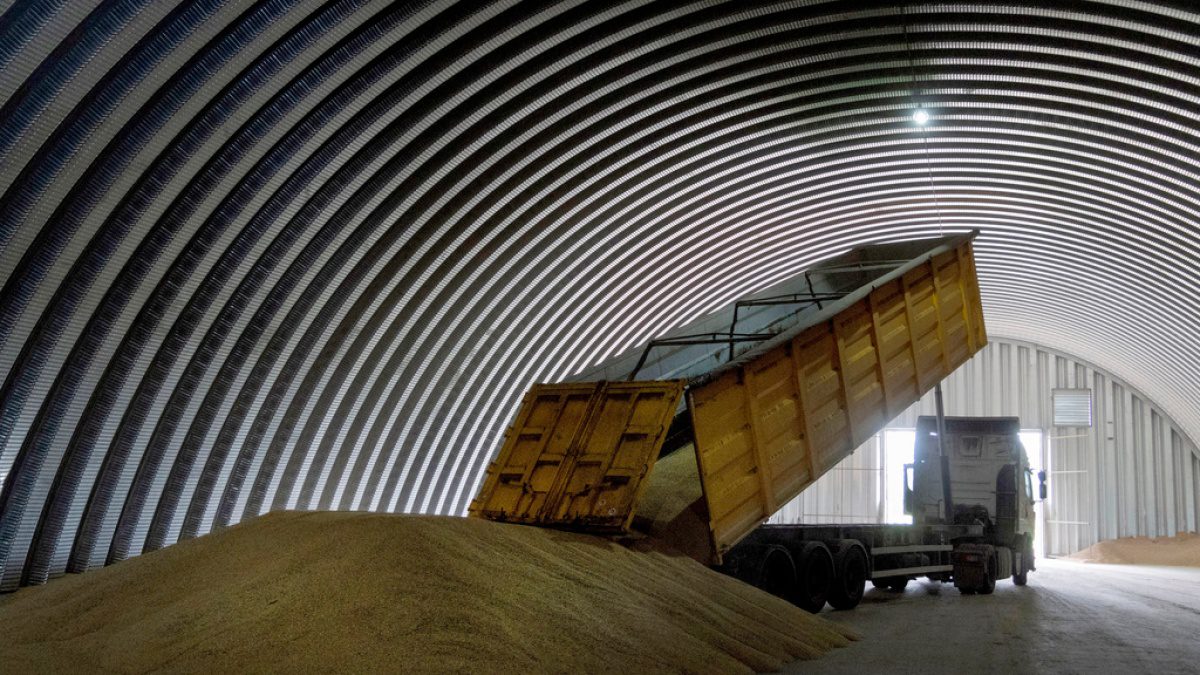Global Courant 2023-04-15 23:22:08
The Polish government said it will temporarily ban imports of grain and other foodstuffs from Ukraine to meet growing anger from Polish farmers, who say they are losing huge sums of money over an overabundance of Ukrainian grain on the market.
The leader of Poland’s governing party, Jarosław Kaczyński, said the Polish countryside is experiencing a “moment of crisis” and that while Poland supported Ukraine, it was forced to take action to protect its farmers.
“Today the government has passed a regulation that bans the import of grain, as well as dozens of other types of food, into Poland,” Kaczyński said at a party convention in eastern Poland on Saturday.
The government announced that the import ban would last until June 30. The regulation also includes an import ban on sugar, eggs, meat, milk and other dairy products and fruit and vegetables.
The Ukrainian Ministry of Agrarian Policy and Food said it “regrets the decision of its Polish counterparts”.
“Polish farmers are facing a difficult situation, but we emphasize that Ukrainian farmers are facing the most difficult situation,” it said.
The ministry suggested that the two countries come to a new agreement in the coming days that would satisfy both sides.
Farmers in neighboring countries have also complained that Ukrainian grain is flooding their lands, causing a surplus that drove prices down – and caused them heavy losses.
Romanian farmers protest outside European Commission offices over the price of grains after an influx of cheap Ukrainian grains into Buchares (File: Inquam Photos/George Calin via Reuters)
“Increasing imports of agricultural products from Ukraine are causing serious disruptions in our countries’ markets, great damage to producers and social unrest,” Poland’s Agriculture Minister Robert Telus told his colleagues from Bulgaria, the Czech Republic, Romania, Slovakia and Hungary. this week. All are members of the European Union and he said the bloc needs urgent action.
“We cannot accept a situation where the entire burden of dealing with increased imports is mainly on farmers from our countries,” said Telus.
The situation is the result of Russia’s war against Ukraine. After Russia blocked traditional seaborne export routes, the European Union lifted duties on Ukrainian grain to facilitate transport to Africa and the Middle East.
Grain has since flowed into Poland, but much of it has not traveled further to the Middle East and North Africa, as intended under the EU plan.
The Polish government has tried to blame the EU for the situation. But some trade unions and opposition politicians have accused government-related companies of causing the problem by buying up cheap, low-quality Ukrainian grain and then selling it as high-quality Polish products to bread and pasta factories.
The leader of the protesting farmers and head of the AgroUnia group, Michał Kołodziejczak, estimated the farmers’ losses at 10 billion zlotys ($2.3 billion).
Growing anger from farmers ahead of elections later this year is giving a headache to the ruling conservative party Prawo i Sprawiedliwość, which is seeking a third term. Polls show it is the most popular party in the country, but may fall short of a majority in the next parliament.
It faces a particular challenge from a far-right party, Confederation, which combines libertarian and nationalist views and includes some members considered sympathetic to Russia. The party has emerged as the third most popular party in some polls.
Kaczyński also announced other measures on Saturday designed to help farmers, including maintaining subsidies on fertilizers.








